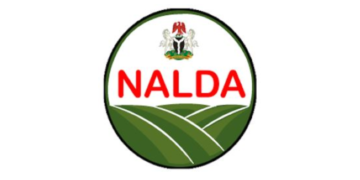Nigeria’s debt service-to-revenue stood at 74.3 per cent in the first quarter (Q1) of 2024. This is the lowest in five years, according to BusinessDay’s analysis of Nigeria’s debt service and revenues between Q1 of 2020 to Q1 of 2024.
The decrease was driven by naira devaluation/ exchange rate gains and partial petrol subsidy removal, experts told BusinessDay.
Data from the latest quarterly statistical bulletin of the Central Bank of Nigeria (CBN) shows that the debt service-to revenue in Africa’s most populous nation stood at 74.3 per cent (N1.31 trillion) of total retained revenue of N1.76 trillion in the Q1 of 2024, lower than 149.5 per cent (N1.97 trillion) in the same period of 2023.
In the first quarter of 2022, 2021, 2020, and 2019, the country’s debt service-to-revenue ratios to revenues were 120.5 per cent, 123.2 percent, 96.7 per cent, and 65.8 per cent respectively.
“Nigeria’s debt-to-revenue ratio is reduced because revenue is growing faster than the increase in debt service. The ratio has reduced because the country’s revenue is increasing. The actual value of debt has not declined but revenue has increased more than debt servicing,” Adeola Adenikinju, president of the Nigerian Economic Society, said.
He stated that the increase in the government’s revenue can be attributed to exchange rate gains, removal of fuel subsidies which allowed the government to save money while fuel prices increased, and the Federal Inland Revenue Service’s capacity to collect more taxes due to technology.
Muda Yusuf, CEO of the Promotion of Private Enterprise, said: “This is largely a result of an improvement of the revenue which is a result of the government reforms such as the removal of fuel subsidy which improved the revenue. The foreign exchange liberalisation also led to an improvement in revenue which are the two major factors.”
He said Nigeria can reduce the rate at which it takes debt by improving revenue to enable fiscal deficit to fall, which will in turn reduce the need for borrowing.
“Nigeria should borrow more from concessional sources such as from multilateral organisations which offer low interest rates rather than commercial debts that are more expensive.
“Domestic problems are better than foreign borrowings because of exchange rates and the government should also reduce its spending,” Yusuf further said.
The Economist, a British weekly newspaper, revealed earlier in the year that many Nigerian politicians seemed keener to spend on themselves, rather than create the conditions for filling the country’s fiscal hole.
“Even if President Bola Tinubu resists the temptation to reinstate the petrol subsidy that he largely removed last year, debt servicing alone in 2024 may gobble up 61 per cent of revenue,” it said.
Since Tinubu announced petrol subsidy removal during his inauguration in May 2023, pump prices have tripled to N600, while the value of the naira has plunged following the floating of the currency.
In June last year, the Central Bank of Nigeria (CBN) merged all segments of the FX market into the Investors and Exporters window and reintroduced the willing buyer, willing seller model.
The naira has continued to depreciate against the dollar and other major foreign currencies since then.
The official exchange rate fell from N463.38/$ to N 1,586.7/$ as of July 24, 2024. At the parallel market, the naira is now pushing above N1,585/$ from 762/$ before May 2023.
The significant decline in debt service to revenue ratio for Q1 is because the revenue earned in the first quarter is considerably high both quarterly or yearly, Tobi Ehinmosan, macroeconomic and fixed income research analyst at FBNQuest Merchant Bank, said.
“However, Nigeria’s debt is on the rise so there will be more debt to service, hence there might be higher debt service in subsequent data,” he said
Ehinmosan said Nigeria can manage its debt by increasing revenue capacity. “The country borrows because revenue receipts are weak relative to rising expenditure, which means while expenditure is increasing, there is no corresponding rise in revenue, hence why we borrow.
“To increase revenue capacity, there is a need for increased oil production, which has to do with tackling oil theft and pipeline vandalism,” he stated.
However, the decrease in debt-service-to-revenue occurs only for domestic debts, not for external debt.
In a recent statement, the World Bank expressed deep concern over the escalating debt service costs that are burdening developing countries worldwide.
Indermit Gill, World Bank’s chief economist and senior vice president, emphasised the gravity of the situation, highlighting the potential for a widespread financial crisis if immediate and coordinated actions are not taken.
He stated that the combination of record-level debt and soaring interest rates has set many developing nations on a precarious path, one that could lead to economic distress and tough decisions regarding the allocation of resources.
The Debt Management Office (DMO) of Nigeria announced that the nation’s total public debt increased significantly to N121.67 trillion (approximately $91.46 billion) as of March 31, 2024.
DMO stated that this figure encompasses the combined domestic and external debts of the Federal Government of Nigeria (FGN), 36 state governments, and the Federal Capital Territory (FCT).
The total public debt as of December 31, 2023, stood at N97.34 trillion (approximately $108.23 billion). This represents a substantial increase of N24.33 trillion or 24.99 per cent within three months.
Wale Edun, minister of finance, said during a press conference this month that Nigeria’s revenue-to-debt service ratio has declined from 97 per cent in 2023 to 68 per cent in 2024, indicating a reduction in the debt burden of the government.
He stated that the country’s revenue is now being managed in such a way that promotes transparency, accountability, and visibility of government spending.
“The country’s revenue condition has been revamped as it no longer depends on ways and means advances from the Central Bank to fund its fiscal obligations,” Edun said.
“There has been a reconfiguration of the processes and the procedures to give greater visibility, transparency, and accountability in government spending. That is the way the government can earn the trust of the people that their money is being spent wisely. This government has exited ways and means borrowing.”





